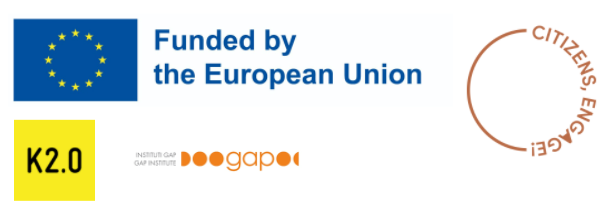It didn’t take long after Ramush Haradinaj became post-independence Kosovo’s third prime minister for his cabinet to start being described as the “mega government.” With its five deputy prime ministers, 21 ministries and over 80 deputy ministers, it was the largest government the country had ever had. The inflated cabinet was quickly called out for its top-heavy structure that critics said was an attempt to accommodate the demands for leadership positions from all 22 coalition parties.
Successive governments had made election campaign promises to reduce the number of ministries and though none reached the size of Haradinaj’s, these commitments weren’t fully met.
In January 2020, during negotiations to form the so-called “government of hope,” a disagreement on the number of ministries — among other factors — almost wrecked the prospects of a coalition between Vetëvendosje (VV) and the Democratic League of Kosovo (LDK). Although both of the parties had declared that there would be no more than 12 ministries, the first Kurti government, which governed for only 52 days before being unseated at the beginning of the pandemic, ended up having 15.
After the short-lived first Kurti government, Avdullah Hoti’s LDK-led administration was also criticized for having a large number of deputy ministers, even though as an opposition assembly member Hoti had strongly condemned the unprecedented size of the Haradinaj government.
Ironically, attempts to pass the law limiting the number of ministerial posts intensified during Haradinaj's "mega government."
Civil society organizations have argued that the inflated numbers of ministerial positions are the result of the legal vacuum created by the lack of a comprehensive law on government, which is called for in Kosovo’s Constitution. The law is supposed to define the organization and functioning of the government — from its composition, competences and program to restrictions on the outgoing government.
Since 2008, a few months after the declaration of independence, there have been various attempts to draft and pass the law on government. Different versions of the draft law were approved three times by the government and twice considered by the Assembly of Kosovo, but they failed to become law.
Ironically, attempts to pass the law limiting the number of ministerial posts intensified during Haradinaj’s “mega government.” As part of promises for broader reforms in state administration, Besnik Tahiri, then the deputy prime minister and national coordinator for state reforms, said that the law on government was “of immense importance and the foundation of the state administration.”
The draft law stated that the government should have no more than 15 ministries and three deputy prime ministers, while it cut the number of deputy ministers and political staff in half. It was estimated that the changes to the organizational structure of the government would significantly reduce the state budget expenditures for staff salaries and other related expenses.
However, Haradinaj resigned in summer 2019, and in the next 11 months there was an early national election, the COVID-19 pandemic began and the government changed two times. The draft law was ready for public hearings only in July 2020. But due to the lack of clarity regarding its constitutionality, the government submitted a request to the Venice Commission, the advisory body of the Council of Europe in the field of constitutional law.
This step further delayed the drafting of the law, which was ultimately approved by the second Kurti administration more than a year later, in late December 2021.
The government requested the Venice Commission’s opinion on two main questions: whether it was constitutional to put a cap on the number of ministries and to what extent the powers of the outgoing government may be restricted before a new government is elected.
While acknowledging that the draft law’s aim was to regulate the functioning of the government in a way that would encourage cost-effectiveness and prevent the risk of corruption, the Commission concluded that a cap on the number of ministries might not be constitutional.
Because Kosovo’s Constitution says that the number of ministers is regulated by an internal act of the government, the Commission stated that the limit should be replaced “with explicit criteria of necessity which must be objectively satisfied before there can be any increase in the number of ministers beyond the number specified in the relevant internal act of the government.”
After receiving the Venice Commission’s opinion, the government removed all limits on ministerial posts and added an explanatory memorandum to go along with the draft law.
'Even after the approval of the Law on Government, abuse of ministerial posts can occur.'
Agron Demi, GAP Institute
Flurije Morina, senior legal officer in the government’s Legal Office, told K2.0 that the paragraphs that determined the maximum number of deputy prime ministers and ministers, “have been deleted to harmonize the draft law with the constitution” and that a paragraph has been added that sets out the criteria for submitting a proposal to increase the number of members of the government.
Agron Demi, policy analyst from the policy research organization GAP Institute, said that the government should have added more criteria regarding the change of the ministerial posts’ number.
“Even after the approval of the Law on Government, abuse of ministerial posts can occur,” he said. “What we have asked from the deputies is to add stricter criteria which oblige the government to provide more information and financial assessments for the need to increase ministerial posts.”
In early March 2022, GAP published a report that analyzes the content of the current draft law. According to the report, the draft law does not fully address the shortcomings that have been raised throughout the years regarding the structure of the government.
Considering the history of expenditures for ministerial posts, GAP’s report argues that the government should be obliged to provide a more detailed financial impact assessment when deciding to establish a new ministry.
“We’ve asked to impose an additional obligation on the incumbent government or the incoming prime minister to provide a detailed explanation to the deputies, why it is necessary to add a new ministry and what financial impact it will have, how it will be coordinated with other ministries, and how many staff and political appointees it will have,” Demi said.
Will the law bring any substantial change?
On March 16, 2022, the draft law on the government was read for the third time by the Assembly and this time it passed the first stage of approval. But will the law actually bring any change in the functioning of the government?
One of the expected changes is the government’s gender composition. Based on the Venice Commission’s requirement to give consideration to the issue of gender, the draft law now includes wording which states that, “The composition of the Government of Kosovo is based on equal gender representation in accordance with the Constitution and applicable legislation.” However, the Law on Gender Equality already requires 50% gender representation in public institutions, a requirement that is not fully implemented.
GAP’s analysis argues that the draft law is largely descriptive and repeats provisions which are already in the Constitution or in other laws.
“This version of the law obliges the current government to appoint women in 50% of the cabinet’s posts,” said Demi. Currently, three out of 14 ministers and two out of three deputy ministers are women.
During the Assembly discussion, Assembly Member Doarsa Kica Xhelili from the Guxo party, welcomed the government’s commitment to gender equality in the cabinet, but demanded the full implementation of the 50/50 representation rule. “This arrangement should be brought into reality and not remain just one more affirmative wording on paper that already exists in the Law on Gender Equality,” Kica Xhelili said.
Apart from the gender composition aspect, the draft law — which according to GAP’s analysis is “largely descriptive, repeats provisions which are already in the Constitution or in other laws, and contains non-normative language” — won’t bring much new to the work of the government.
The descriptiveness of the draft law’s language was also mentioned by the Venice Commission and they recommended moving much of this text into a government manual or handbook.
Currently, the draft law is sent back to the assembly’s Committee on Public Administration for last amendments before it will be brought back to the deputies for final voting.
Feature image: Government of the Republic of Kosovo

This publication was published with the financial support of the European Union as part of the project “Citizens Engage”, implemented by K2.0 in partnership with GAP Institute. Its contents are the sole responsibility of Kosovo 2.0 and GAP Institute and do not necessarily reflect the views of the European Union.
Why do I see this disclaimer?


